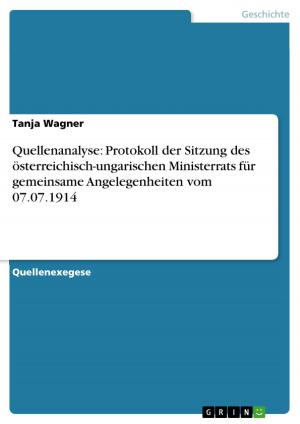Last Waltz on the Danube
The Ethnic German Genocide in History and Memory 1944-1948
Nonfiction, History, European General| Author: | Ali Botein-Furrevig, Ph.D. | ISBN: | 9781935232612 |
| Publisher: | ComteQ Publishing | Publication: | October 1, 2012 |
| Imprint: | Language: | English |
| Author: | Ali Botein-Furrevig, Ph.D. |
| ISBN: | 9781935232612 |
| Publisher: | ComteQ Publishing |
| Publication: | October 1, 2012 |
| Imprint: | |
| Language: | English |
The forgotten ethnic cleansing--the grand scale genocide--of some two million innocent ethnic German citizens living for over 400 years along the Danube River has been long shrouded in silence. Dr. Ali Botein first discusses the horrific story of Tito's 1944-1948 barbarous revenge against the Danube Swabians, most of whom had never even been to Germany. In the 18th century following the return of Hungary to the Austro-Hungarian Empire by the Ottoman Turks, The House of Habsburg encouraged and provided generous land and tax incentives to Swabians living in the Western lands of the Holy Roman Empire to immigrate to the Hungarian owned lands along the once picturesque Danube River area which now had been devastated by the years of wars. The Swabians settled mostly in the Batschka and Banat Provinces, and with true pioneer spirit and tenacity these hard working peaceful people built towns, churches, schools and turned the former wasteland into fertile land and what would become known as "The breadbasket of Europe." For over 300 years, though they lived and worked peacefully in a multi-ethnic and multi-lingual region comprised of Serbs, Croats, Swabians and Jews, they also continued to speak their native tongue and never stopped cherishing and maintaining the customs and traditions of their ancestors. Following WWI and the dismantling of the Habsburg Empire, the area was redistributed among Yugoslavia, Hungary, and Romania. The Danube Swabians in the Batschka found themselves involuntary citizens of the newly formed country of Yugoslavia. Though they were technically citizens of Hungary and their loyalties had always been to the Austro-Hungarian Empire, they faced animosity from the other ethnic groups because of their high economic and cultural status and the fact that they had succeeded in building prosperous settlements. But generally between the wars, life went on as usual. However, in the aftermath of WWII and under the dictatorship of Tito, things would drastically change and the fate of the Danube Swabians was sealed; they lost their property, their rights and were declared "enemies of the State." Even though they lived outside of the Riech, they were perceived as Nazi collaborators and accused of war crimes they never committed. They eventually became innocent victims of Tito's bloodlust and his barbarous and systematic program to eradicate all ethnic Germans. They were torn from their families, exiled, placed in work camps, concentration camps and deported to ancient Russian mines. Thousands perished from inhumane conditions, massacres, torture, hunger and disease. By the end of 1894, over 2 million had died because of Tito's revenge and his insatiable hate for anything German. The meticulously researched historical section of the book is complimented by the remarkable story of Katharina Karl Marx who was a young girl in German Batschka when Tito's Army changed the idealistic pastoral life of this famer's daughter: Going to the movies with friends, dances, traditional festivals and Sunday walks along the banks of the Danube. In 1944, for Katharina and her family and friends, the music stopped. She was hidden, separated from her family and sent to a work camp. Through sheer faith and strength of will she eventually managed to escape over the border and reunite with her family. In the mid 1950s she and her family came to America where she married, raised a family. Included is an educator guide for teaching Holocaust and genocide awareness and a general discussion of genocide. Jewish herself, Dr. Botein felt it important to include a chapter on the Jews of the Batschka area since many were living and working there and in Serbia and playing an active role. Botein sensitively and intelligently draws conclusions about the peaceful relationship between the Jews and ethnic German populations and on the incomprehensible fate shared by these two ethnic groups at the hands of Hitler.
The forgotten ethnic cleansing--the grand scale genocide--of some two million innocent ethnic German citizens living for over 400 years along the Danube River has been long shrouded in silence. Dr. Ali Botein first discusses the horrific story of Tito's 1944-1948 barbarous revenge against the Danube Swabians, most of whom had never even been to Germany. In the 18th century following the return of Hungary to the Austro-Hungarian Empire by the Ottoman Turks, The House of Habsburg encouraged and provided generous land and tax incentives to Swabians living in the Western lands of the Holy Roman Empire to immigrate to the Hungarian owned lands along the once picturesque Danube River area which now had been devastated by the years of wars. The Swabians settled mostly in the Batschka and Banat Provinces, and with true pioneer spirit and tenacity these hard working peaceful people built towns, churches, schools and turned the former wasteland into fertile land and what would become known as "The breadbasket of Europe." For over 300 years, though they lived and worked peacefully in a multi-ethnic and multi-lingual region comprised of Serbs, Croats, Swabians and Jews, they also continued to speak their native tongue and never stopped cherishing and maintaining the customs and traditions of their ancestors. Following WWI and the dismantling of the Habsburg Empire, the area was redistributed among Yugoslavia, Hungary, and Romania. The Danube Swabians in the Batschka found themselves involuntary citizens of the newly formed country of Yugoslavia. Though they were technically citizens of Hungary and their loyalties had always been to the Austro-Hungarian Empire, they faced animosity from the other ethnic groups because of their high economic and cultural status and the fact that they had succeeded in building prosperous settlements. But generally between the wars, life went on as usual. However, in the aftermath of WWII and under the dictatorship of Tito, things would drastically change and the fate of the Danube Swabians was sealed; they lost their property, their rights and were declared "enemies of the State." Even though they lived outside of the Riech, they were perceived as Nazi collaborators and accused of war crimes they never committed. They eventually became innocent victims of Tito's bloodlust and his barbarous and systematic program to eradicate all ethnic Germans. They were torn from their families, exiled, placed in work camps, concentration camps and deported to ancient Russian mines. Thousands perished from inhumane conditions, massacres, torture, hunger and disease. By the end of 1894, over 2 million had died because of Tito's revenge and his insatiable hate for anything German. The meticulously researched historical section of the book is complimented by the remarkable story of Katharina Karl Marx who was a young girl in German Batschka when Tito's Army changed the idealistic pastoral life of this famer's daughter: Going to the movies with friends, dances, traditional festivals and Sunday walks along the banks of the Danube. In 1944, for Katharina and her family and friends, the music stopped. She was hidden, separated from her family and sent to a work camp. Through sheer faith and strength of will she eventually managed to escape over the border and reunite with her family. In the mid 1950s she and her family came to America where she married, raised a family. Included is an educator guide for teaching Holocaust and genocide awareness and a general discussion of genocide. Jewish herself, Dr. Botein felt it important to include a chapter on the Jews of the Batschka area since many were living and working there and in Serbia and playing an active role. Botein sensitively and intelligently draws conclusions about the peaceful relationship between the Jews and ethnic German populations and on the incomprehensible fate shared by these two ethnic groups at the hands of Hitler.















